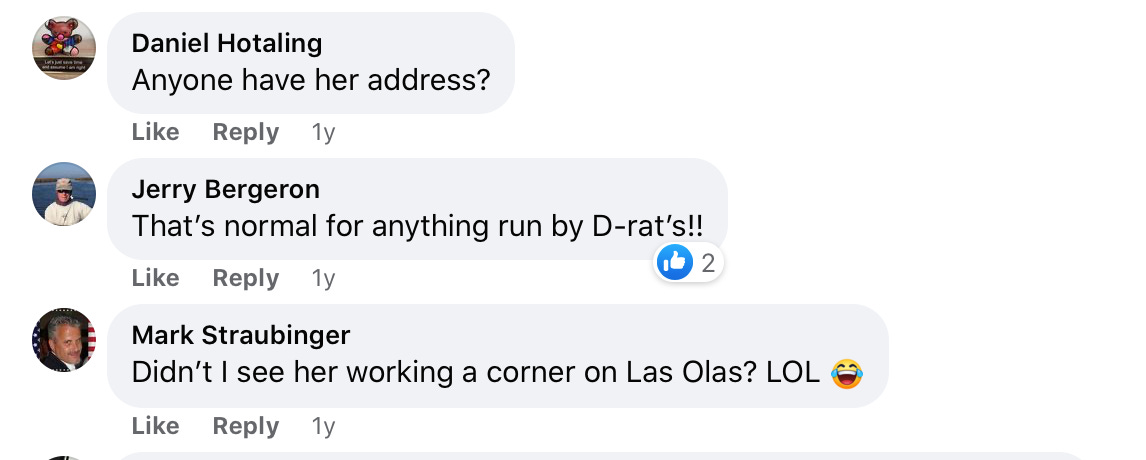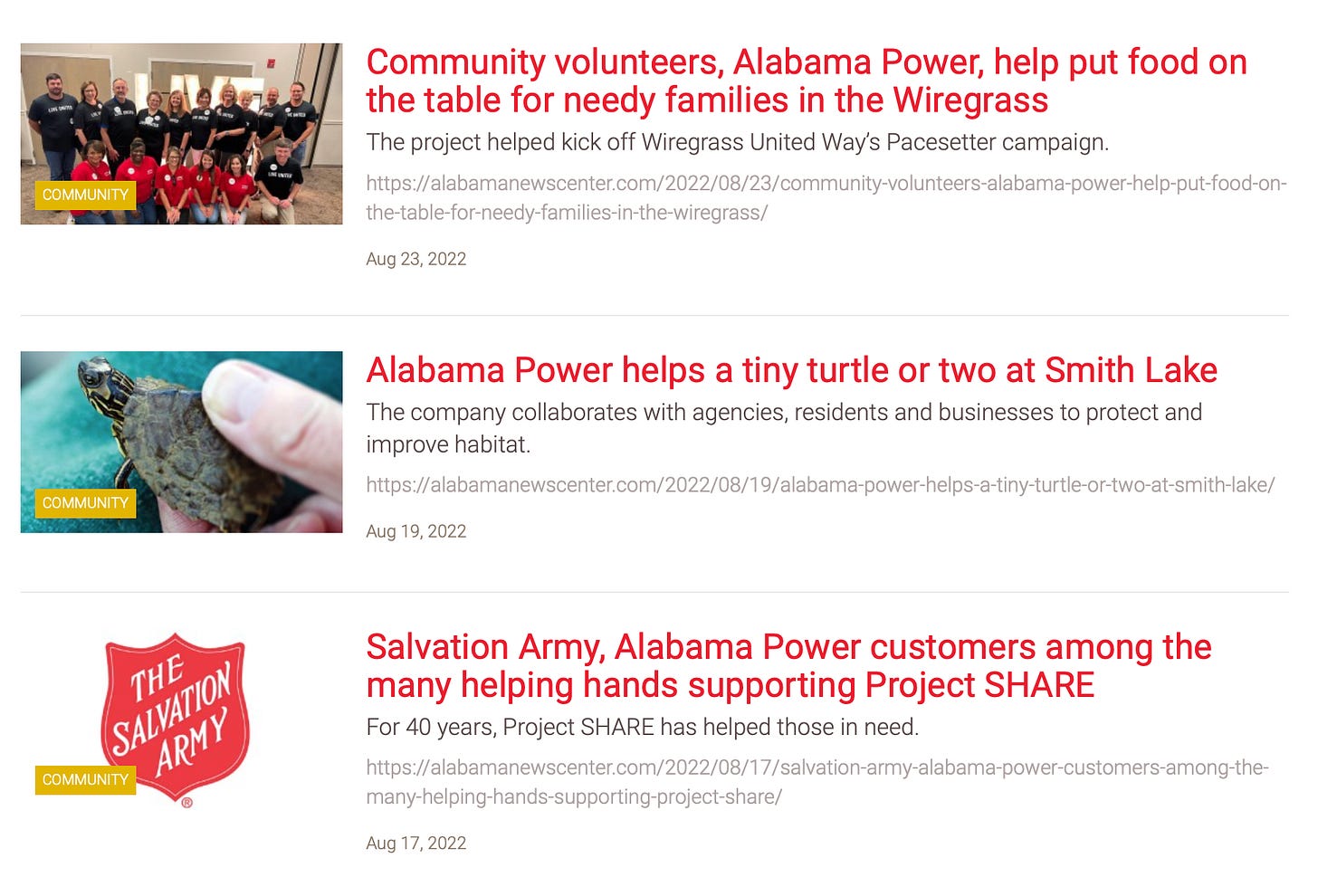The fossil fuel industry's fake news sites
By exploiting Americans’ trust in local media, polluters hope to squash their political opponents.
Welcome to the web version of HEATED, a newsletter for people who are pissed off about the climate crisis. To receive weekly stories like this in your e-mail inbox, click the button below. It’s free!

In an attempt to influence the outcome of the 2016 U.S. presidential election, Russian disinformation agents created Twitter profiles meant to look like local newspapers.
Named things like The Milwaukee Voice, The Seattle Post, and Camden City News, the accounts would post legitimate articles about their targeted communities, before slipping in articles bashing then-Democratic candidate Hillary Clinton.
This tactic attempted to capitalize on Americans’ distrust in national media. “Local media, more attuned to the particulars of readers’ lives and the cogs of community government than to sweeping dogma, tend to be considered more trustworthy than national outlets,” Lauren Smiley wrote for the Columbia Journalism Review in 2019. “According to a recent Poynter survey, the difference is about 20 percentage points.”
The Russians’ fake local media accounts have since been banned from social media platforms. But the strategy of exploiting Americans’ trust in local news for political gain still exists, in the form of local media sites created by fossil fuel interests.
These sites, which have been increasing in number in recent months, push industry talking points to readers alongside seemingly unbiased local news.
“It’s not the same as Russian disinformation… [but] it’s on the same continuum,” said Tim Gleason, a journalism professor emeritus at the University of Oregon and media ethics expert. “It’s providing information that’s not entirely transparent and honest. It’s blurring lines that shouldn’t be blurred.”
In the next two newsletters, we’ll attempt to clear things up. Today, we’ll take a dive into the news sites run by electric utilities as part of their strategy to limit renewable energy. Tomorrow, we’ll take a look at two local “news” sites started by Chevron.
“I paid my own power company to do this to me”
In 2020, Alissa Schafer found herself under attack by a Florida-based political news website called the Capitolist.
At the time, Schafer was serving on the Broward County Soil and Water Commission, while also working for the non-profit utility watchdog group Energy and Policy Institute. Her work at EPI was researching how Florida Power & Light—the largest electric utility in the country—was trying to undermine rooftop solar in the state.
Schafer was allowed to have both jobs, so long as she filed the necessary income disclosures. But the Capitolist claimed Schafer’s disclosures were falsified. Citing an ethics complaint filed against Schafer by Alabama-based group called the Jobkeeper Alliance, the site said the Energy and Policy Institute “doesn’t currently exist anywhere. Nor has it ever existed.”
The Capitolist followed up several times, claiming in certain terms that the Energy and Policy Institute was a “dark money group” and “front group … with ties to rooftop solar.” Each article featured an ominous illustration of a burned dollar bill next to a darkened picture of Schafer’s face.
The pieces did well on the Capitolist’s Facebook page, which boasts nearly 40,000 followers. Commenters accused Schafer of “selling meth” and “working a corner,” and inquired about her home address.
The article’s claims, however, turned out to be false. The Energy and Policy Institute does exist. The ethics complaint against Schafer was dismissed.
The Capitolist never published any follow-up articles about the dismissal. And last week, thanks to a Miami Herald investigation, a potential reason emerged: The Capitolist is secretly bankrolled and controlled by FPL, the electric utility Schafer was researching.
The Capitolist was hiding its connection to FPL “through a string of shell companies and an Alabama-based consultant called Matrix,” the Herald reported. And Matrix is responsible for creating the Jobkeeper Alliance—the group that launched the ethics complaint against Schafer—according to CorpWatch.
“It’s disturbing to realize that my own power company had a direct role in making that happen,” Schafer told HEATED. “I paid my own power company to do this to me.”
A more sophisticated take on an old anti-solar strategy
Schafer likely drew FPL’s ire because of her research into the utility’s attempts to fight net metering, a climate policy that allows rooftop solar owners to sell the energy they produce and don’t use back to the grid at retail price.
Net metering is a climate policy because it makes it easier for homeowners to afford solar panels, and results in more solar energy on the grid. But what’s great for the climate tends to be not so great for entities that profit from burning fossil fuels—and power utilities are among those entities.
With net metering, utilities not only receive less money in electric bills from solar users. They also have to pay solar users to buy their electricity. That’s bad for utilities’ short-term bottom line, so for years, utilities across the country have been doing everything they can to stop net metering—including trying to saturate local media with their messaging. As Media Matters reported in 2019:
Utilities and their allies regularly try to harness local media outlets to push out these and other anti-solar messages. We saw this in Florida in 2016, when utility surrogates published more than a dozen op-eds in newspapers (without disclosing their utility ties) that argued for a deceptive ballot amendment that would have undercut the rooftop-solar industry. (The amendment lost at the polls.) Earlier this year, utilities made similar pushes via local media outlets in Michigan and Iowa.
Utilities’ strategy of bombarding real local newspapers with anti-solar op-eds, however, had a problem: they couldn’t stop the newspapers from also publishing pro-solar op-eds. They also couldn’t stop local newspaper reporters from fairly reporting on net metering policies. Because of this, readers could always get both sides.
It’s no wonder, then, why some utilities have shifted their strategy to funding their own local news outlets, said Daniel Tate, the research manager at the Energy and Policy Institute.
“The real big impact and purpose [of these sites] is to snuff out any challenging narrative, or dissent, or problematic headlines,” he said. “They control the means of production of journalists so no critique can get out.”
Varying degrees of deception
The Capitolist is a somewhat extreme example of a utility-funded news outlet. That site’s connection to the utility was explicitly hidden by a web of shell companies. Had the Miami Herald not received a trove of internal documents about it, the connection may have never been revealed.
That’s not the case with the Alabama News Center, another example of an electric utility-funded news website.
If you go to the site’s “About” page, the connection to Alabama Power is fairly clear: “Alabama NewsCenter is a credible, direct source of the news and information that matter most to Alabama Power customers.” It adds: “Alabama NewsCenter is one of several ways Alabama Power communicates with and advertises to its customers in the rapidly evolving digital age.”
Still, the Alabama News Center’s branding is distinct from Alabama Power’s—and unless you get curious and decide to seek out the About page on the site, the connection is not clear.
There is no disclosure of Alabama Power’s involvement on any of the article pages. And the site’s Facebook page, which boasts more than 50,000 followers, is branded a “News & Media Website.” The “About” page simply says: “Telling the good news stories of Alabama.” It contains no information about the site’s connection to Alabama Power.
Thus, those who get their news from the Alabama News Center on Facebook may remain blissfully unaware of Alabama Power’s high fees on solar users, or its parent company’s millions in spending on climate misinformation. “They never see any other side of the story,” Tate said. “They never hear how they have the highest bills in the country, because it’s been snuffed out.”
Gleason, the journalism ethics professor from Oregon, said gussying a utility PR website up to make it look like journalism is inherently deceptive. “Even if the sponsorship is disclosed somewhere, there’s no way that the not-fully-engaged consumer is going to realize that what he’s looking at is PR,” he said. “You’re trying to sell us something without telling it up what is you’re selling.”
Ultimately, revealing such deception is the best way to combat it, said Schafer. “Utilities want to be seen as your friendly local power provider,” she said. “It’s not advantageous to be known as a political operatives.”
Tomorrow, we’ll explore some more fossil fuel-funded news websites, and explore what they might mean for the future of local media.
Links to learn more:
How FPL secretly took over a Florida news site and used it to bash critics. Miami Herald, August 2022.
Meet the boss of the website secretly run by FPL. Miami Herald, August 2022.
Revealed: the Florida power company pushing legislation to slow rooftop solar. Floodlight and the Miami Herald, December 2021.
Utilities try to exploit local media, push bogus claims. Media Matters, June 2019.
NET ZERO, SHMET SHMEERO: John Oliver and the “Last Week Tonight” team have provided an extremely necessary public service for the climate community by doing a segment absolutely dunking on carbon offsets. Now, you don’t have to spend 20 minutes at a party explaining to your friends why net zero pledges are mostly bullshit. You can just send them the video below, which is not boring or annoying! (You could also send them this HEATED edition from last year, but John Oliver is probably more entertaining).
CATCH OF THE DAY:
This is Catch of the Day, tiny lady edition!! Here are some smol Fish friends he’d like you to meet.
First up is Eleanor, the beautiful child of reader Shannon. Shannon writes: “Eleanor wants to fight against climate change, as bad weather is very scary for such a small creature.”
Next up is Pepper, the cheerful cherub of reader Clarke. Writes Clarke, “Pepper requires a regular trim in order to tolerate London’s rising temperatures. She will be able to keep her long locks only when we have controlled the current climate chaos.”
Want to see your furry (or non-furry!) friend in HEATED? Send a picture and some words to catchoftheday@heated.world.







There are no depths to which these cretins will not sink.